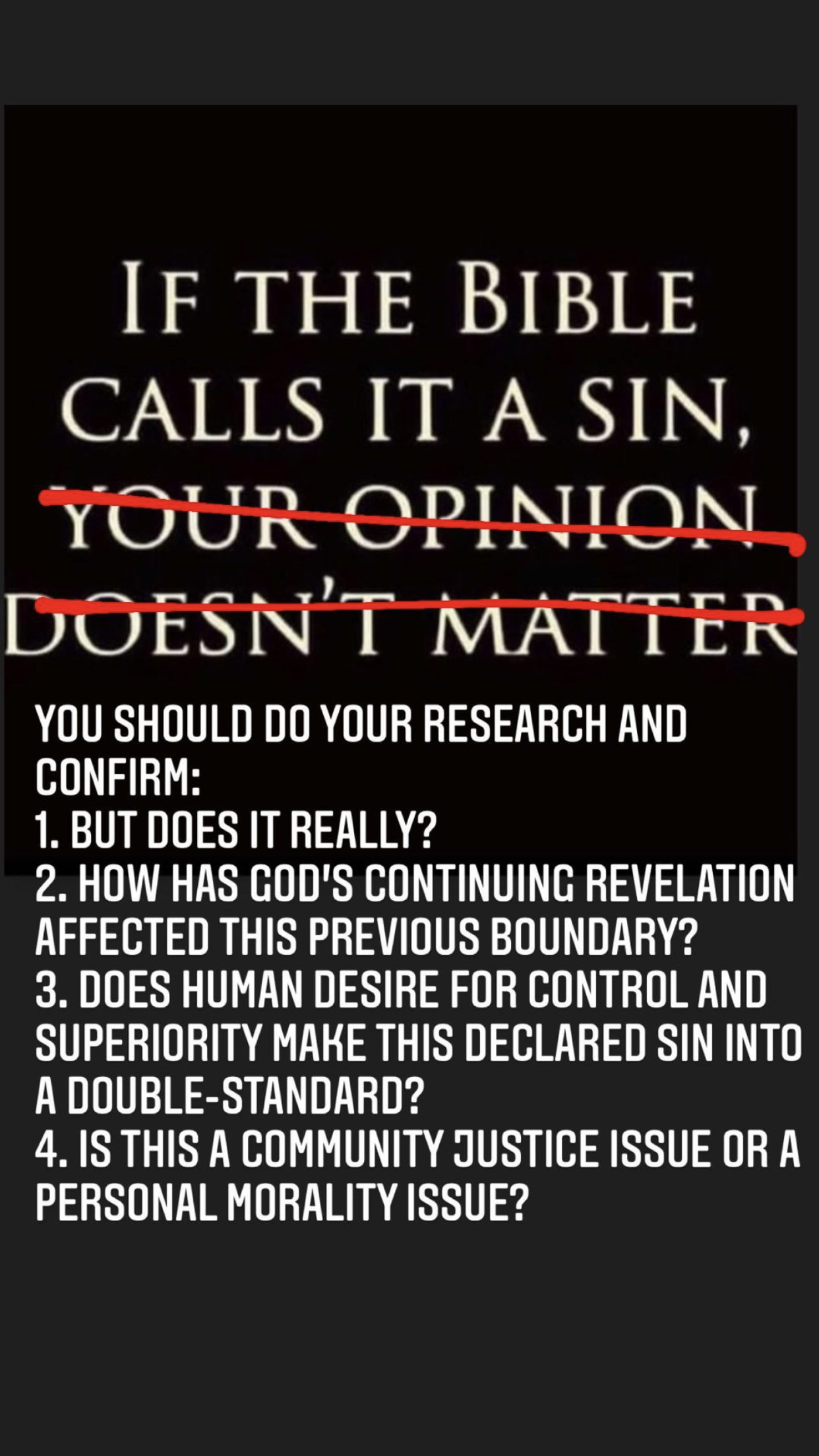Let’s Edit New Year Theology
The calendar has barely changed over but your social media scrolling has made things abundantly clear. It’s time to fix your life. New year, new you. Get right with God. Manifest your blessings.
That strange internet theology made of toxic positivity, self-actualization, and prosperity gospel really takes off in January. Whether it’s weight loss, money management, being a better Christian, or just being somehow intangibly more, meme culture puts inadequacy right in your face. Or worse yet: right in your faith.
A while ago, I got sick of bad internet theology. Specifically, I got tired of that specific meme proselytizing that presents Christian faith as a monolithic, simplistic, self-improvement, personal superiority platform. So I started correcting it.
I offer below a few of my favorite corrections as an invitation for you to edit your the memes posing as theology in your feed.
A faithful, thoughtful woman shared the original screenshot with me. “This was in my niece’s Facebook feed, she told me. “And I couldn’t quite figure it out, but it really rubbed me the wrong way.” Me, too. The oversimplification of sin indicated that no human has ever arbitrated the Bible’s laws and practices. It failed to account for the long-standing practice of cherry picking a verse that affirms your personal hatred and preferred morality at the expense of another’s personhood. Sure, my correction didn’t have the same catchy ring to it. But I felt better knowing another option was out there.
The New Year makes for a whole other set of stakes. Suddenly, Christianity gets wrapped up with every other life hack or self-help mindset and becomes guilt-ridden, shame-centered, and cheap. Because it’s not hard enough out there for Christians these days, the New Years faith memes make the Bible just as manipulative as a weight loss MLM scheme.
Ah yes, the “God will make me rich” theology for which the martyrs died. Start your new year by demanding God gives you what you deserve and tacitly ignoring the hundreds of scriptural demands to give what you have so your neighbor has abundant life!
I have no problem with faithful people recognizing that all good things come from God. I get testy when a meme lets them settle into the lie that they’re the only ones who deserve it.
In a pandemic, the specter of death is real. I watch the weekly death tallies roll in and praise God for every breath I draw. But when it’s set as triumphalism, praising your Savior that you have what your neighbor doesn’t, it feels a lot like moralizing survival. You must be doing something right, and God must have blessed you, because those other schmucks didn’t even live through the past year.
The moment we deny of the constant reality of pain and make our current positive circumstances into something we’ve earned or deserved is the moment we’ve lost sight of the cross.
But it’s not all life-and-death stakes in the the bad theology department. Sometimes it’s just guilt and bad grammar. It’s still worth correcting.
I refuse to let people think that Christians aren’t sad, regretful, confused, or disappointed. Christians have feelings too, and they’re not limited to perky ones. I also refuse to let people mistake your for you’re.
This isn’t the year that everything changes. Every year everything changes. And God isn’t perfecting things for you because life isn’t perfect. But God is at work for your good because that is God’s constant promise. And it’s not just a promise for you. It’s a promise for all of God’s beloved creation. Honestly, I had to edit this darned thing until it was unreadable.
But then, the worst thing about this meme and Christian meme sermons in general: the addition of a Bible verse. In this case, it’s actually entirely misused. I’m sure the author considered it a paraphrase, but that’s just another word for an opinion. So it’s easy enough to point out that what’s written here isn’t actually from a psalm and you should always cross-reference.
Each of these memes illustrate the hardest thing about correcting Instagram theology: the ones I most often want to correct are out-of-context Bible verses. If you can make it sound like the Bible wants you to lose weight, or makes your accumulated debt a reflection of your humanity, or dehumanizes whole groups of people, how can you argue with that?
I’ll tell you how: one hackishly corrected meme at a time.
Rev. Megan Torgerson
Megan is lead pastor at Easter Lutheran Church in Eagan, MN. She’s also a mom, wife, farmer’s daughter, and State Fair superfan. You can read her theology corrections on Instagram at @pastortorgerson.
Download a free session today!
We know how hard it is to find a Bible study that can be used easily in any context. Our premise is simple: Ignite curiosity in the Bible through generous invitation, fresh witness, and breathtaking video. Download episode 1 for free and see what it’s all about.







